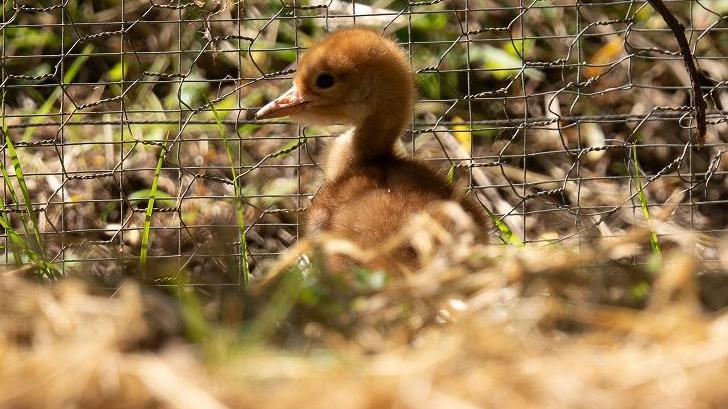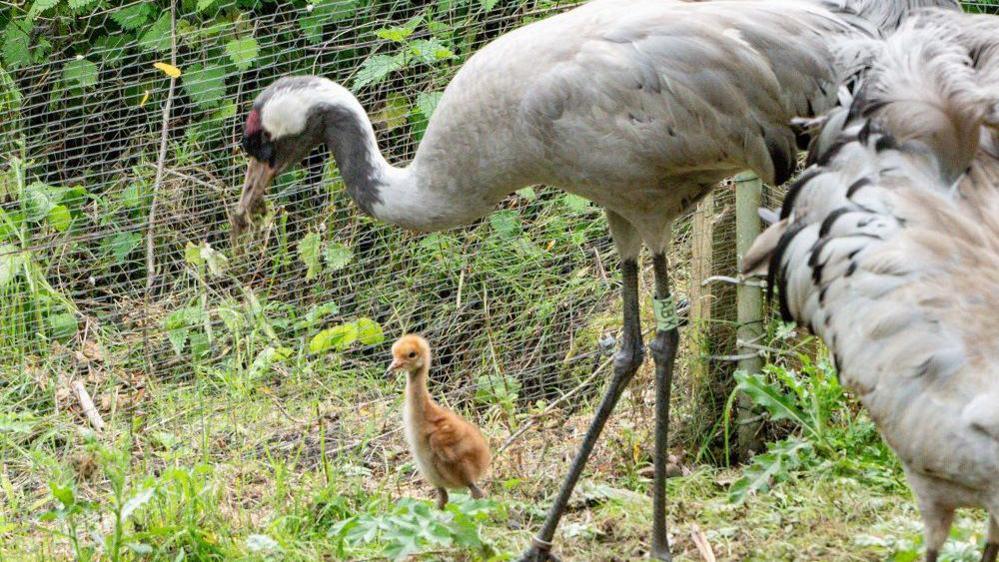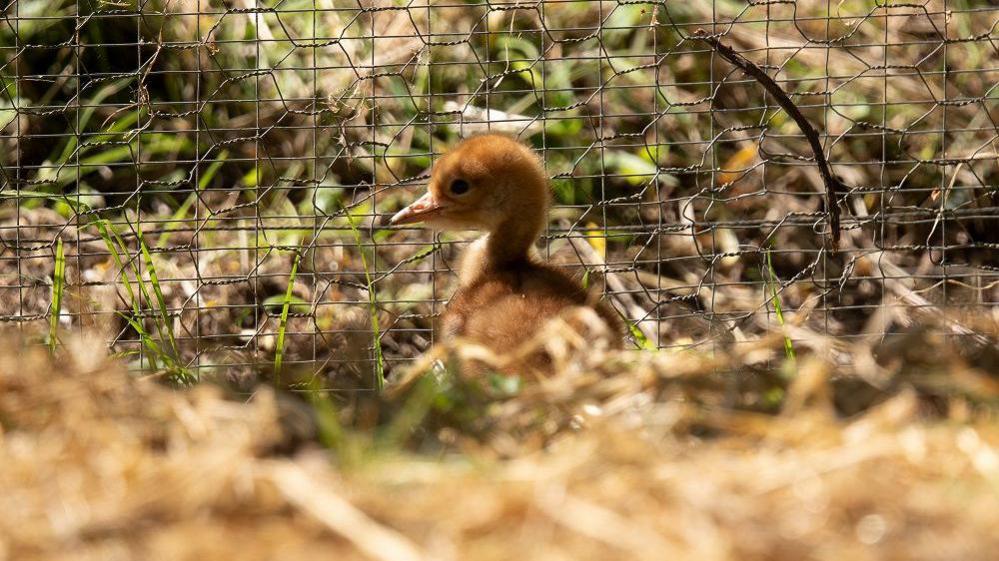Centre's first crane chick in three years dies

The common crane chick was just the second to hatch to its parents
- Published
A common crane chick that was the first to have hatched at a nature reserve for three years has died, bosses have said.
The bird was just the second to hatch to its parents, which have been at WWT Washington Wetland Centre near Sunderland since 2008.
Vets are working to identify a possible cause of death, a WWT spokeswoman said.
The adult pair were originally hatched in the Netherlands and moved to Washington in the early stages of the Great Crane Project, which has seen the bird successfully integrated to the UK.
The chick was born in May and the family had been off-show to allow them to bond in a quiet and protected environment.

The crane family had been bonding away from visitors since the chick's birth in May
However, in an update, the organisation said: "We're very sad to let you know that, despite excellent and expert care from our collection team and vets, the crane chick has passed away.
"We don't know the reason but we'll be working with our vets to understand if there's a cause which can be identified in the coming weeks.
"Thanks, as ever, for the care and support you show our animals and team, especially at times like this.
"Conservation isn't always easy and as with all species, not every bird that hatches will make it to adulthood."
It is not yet known whether the chick was male or female, with the WWT saying testing was still to be carried out.
Its parents are 18 years old and bred for the very first time in 2022 when they successfully hatched a young female.
WWT had said the second chick arrived after months of flirting, nest building and prospecting by the adult birds.
In the wild, common cranes form monogamous pairs for life, breeding from around four to five years old.
Follow BBC Sunderland on X, external, Facebook, external, Nextdoor and Instagram, external.
Get in touch
Do you have a story suggestion for BBC Wear?
Related topics
- Published19 June
